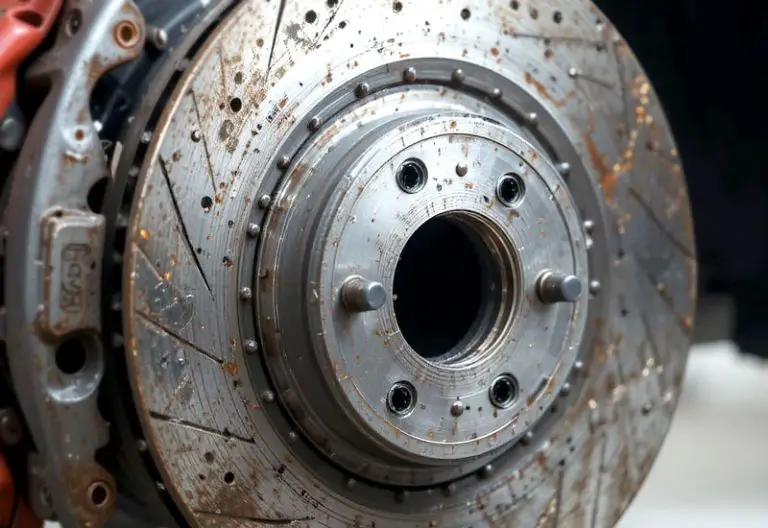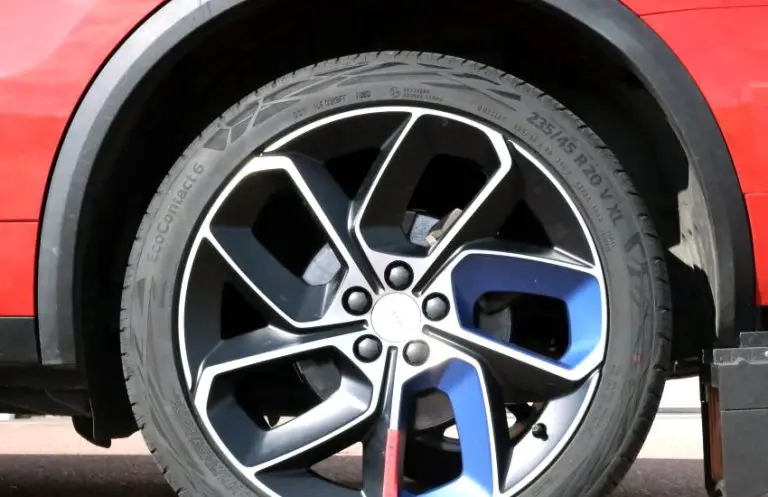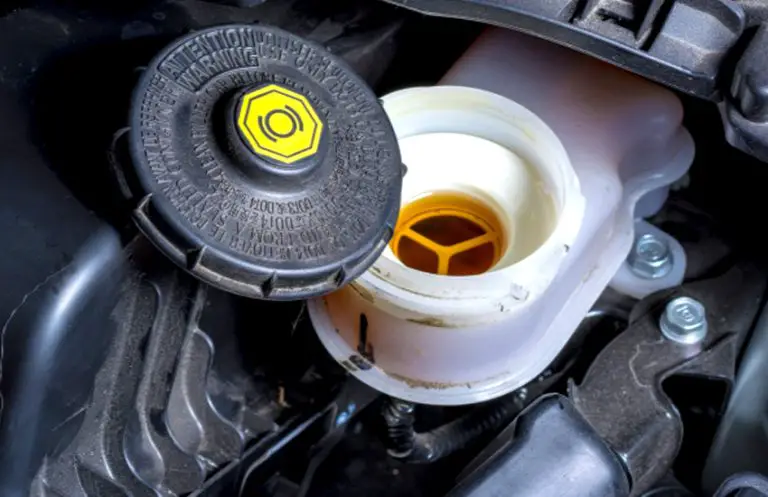When you’re driving, the last thing you want to worry about is whether your brakes are working properly. Yet, many car owners don’t realize how crucial it is to maintain their brake system until something goes wrong. One of the most common issues drivers may encounter is a sticking brake caliper, which can cause serious problems with braking performance. But did you know that air in the brake line might be to blame for this issue?
In this article, we will dive deep into how air in the brake line can cause your calipers to stick, what the underlying reasons are, and how to fix the issue. By the end of this post, you’ll have a clear understanding of this often-overlooked problem and how to keep your brake system in optimal condition.
What Happens When Air Gets into the Brake Line?
Your car’s braking system relies on hydraulic pressure to operate effectively. When you press down on the brake pedal, brake fluid flows through the lines to push the brake calipers, which then press the brake pads against the rotors to slow the vehicle. This process requires a sealed system with the brake fluid under constant pressure.
However, if air enters the brake lines, it can disrupt this process. Unlike brake fluid, air is compressible. This means that when you press the brake pedal, the air in the lines will compress before the brake fluid does, leading to delayed or inconsistent braking performance. In some cases, air in the lines can also cause other issues, such as a sticking caliper.
When air gets into the brake system, it might prevent the brake fluid from flowing smoothly to the calipers. If the brake fluid pressure is reduced or erratic due to air, the calipers might fail to release properly after applying the brakes. This can cause them to stick, leading to various performance problems, such as overheating, excessive brake wear, and even the potential for brake failure in extreme cases.
How Does Air Enter the Brake Line?
Air can enter the brake lines in several ways, typically during maintenance, repairs, or other issues that disrupt the integrity of the braking system. Some of the common causes include:
- Brake Fluid Leaks: If there is a leak in the brake system, air can enter the system when the fluid level becomes too low. This is often due to a crack or a loose connection at any of the brake components.
- Improper Brake Fluid Changes: During a brake fluid change, if the brake lines are not properly sealed or if air is introduced accidentally, the brake fluid reservoir can become contaminated with air.
- Damaged Brake Lines: Brake lines that are cracked or corroded can allow air to seep into the system, especially under pressure.
- Bleeding the Brakes: When you bleed your brakes to remove air, if done incorrectly, air can be left in the system. This is a common problem when air gets trapped in the brake calipers, preventing full brake fluid pressure from building.
Effects of Air in Brake Lines on Calipers
When air gets into the brake lines, it can cause a variety of problems, especially with the brake calipers. Here’s how it can affect the calipers specifically:
1. Delayed or Inconsistent Braking
One of the first signs of air in the brake line is a spongy or soft brake pedal. This is because the air in the lines compresses when you press the brake pedal, leading to inconsistent brake fluid pressure. If the calipers do not receive adequate or consistent pressure, they may not fully engage, causing delayed braking. This can lead to issues like longer stopping distances and less responsive braking.
2. Sticking Brake Calipers
The most concerning issue with air in the brake line is the potential for calipers to stick. When the air creates irregular brake fluid pressure, it can prevent the calipers from properly releasing after the brakes are applied. This is because the hydraulic pressure that should push the caliper piston back into place might not be strong enough to do so. As a result, the brake pads will remain in contact with the rotors, creating excess friction and heat. Over time, this can cause the calipers to seize or stick in place, leading to a variety of issues.
3. Overheating and Excessive Brake Wear
If the calipers are sticking, they will generate excessive heat due to the continuous friction between the brake pads and the rotors. This overheating can damage the brake components, leading to warped rotors, worn-out brake pads, and reduced braking performance. In the worst-case scenario, the calipers could even seize completely, rendering the braking system inoperable.
4. Brake Fluid Contamination
Air in the brake line can also introduce moisture into the brake fluid, which is detrimental to the brake system. Brake fluid is hygroscopic, meaning it can absorb moisture from the air. This moisture can cause the fluid to become contaminated, leading to reduced braking efficiency and potential corrosion of internal brake components. The presence of moisture can also cause the brake fluid to boil at lower temperatures, which further compromises braking performance and may cause the calipers to stick.
5. Reduced Braking Efficiency
When air is present in the brake lines, the overall braking efficiency decreases. This happens because the brake pedal may feel soft or spongy, making it difficult to control the amount of braking force applied. This not only impacts the caliper’s performance but also affects the safety and stability of your vehicle during braking.
Can Air in the Brake Line be Easily Identified?
In most cases, detecting air in the brake line can be tricky because there are no visible signs. However, there are several symptoms that can help you identify the problem. These include:
- Spongy Brake Pedal: If your brake pedal feels soft or spongy when pressed, this is a strong indication that air is present in the brake lines.
- Unresponsive Brakes: If you notice that your brakes are not as responsive as they used to be, or the vehicle takes longer to stop, it might be due to air in the brake system.
- Visible Brake Fluid Leaks: If you see brake fluid leaking around any of the brake components, air could be entering through the leak.
- Grinding or Squealing Noises: If you hear unusual noises from the brakes, this could be caused by a sticking caliper, which may be due to air in the brake line.
If any of these symptoms are present, it’s crucial to have your brake system inspected by a professional to avoid further damage or safety issues.
How to Fix Air in the Brake Line
If you suspect that air is in your brake lines and causing caliper issues, it’s essential to remove it from the system. The process of removing air is called “bleeding the brakes.” This procedure can be done using various methods:
- Manual Bleeding: In this method, a person presses the brake pedal while another person opens and closes the bleeder valve on each caliper. This allows air and brake fluid to escape.
- Pressure Bleeding: This technique involves using a pressure bleeder tool that forces brake fluid through the lines, pushing out air.
- Vacuum Bleeding: A vacuum pump is used to draw out brake fluid and air from the brake lines.
Each of these methods can help remove air from the brake lines and restore proper hydraulic pressure to the brake calipers. It’s important to follow the correct procedure for your vehicle and ensure that all air is fully removed from the system.
Preventing Air from Entering the Brake Line
To avoid the issue of air in the brake line, it’s essential to take proper care of your braking system. Here are a few preventative measures:
- Regular Brake Inspections: Have your brake system inspected regularly to identify any potential leaks, cracks, or worn-out components that could allow air to enter the system.
- Proper Fluid Changes: Always ensure that brake fluid is changed at the recommended intervals and that the system is properly sealed during the process.
- Check for Leaks: Keep an eye out for any visible brake fluid leaks, and address them immediately to prevent air from entering the lines.
- Bleed Brakes After Repairs: If any part of the braking system is repaired or replaced, make sure to bleed the brakes to remove any air that may have entered.
By following these guidelines, you can maintain your braking system and prevent air from causing caliper sticking or other related issues.
Are These Questions in Your Mind?
Is it safe to drive with air in the brake lines?
No, driving with air in the brake lines is not safe. Air can cause inconsistent braking performance, which can lead to longer stopping distances and reduced control of your vehicle. It’s important to address the issue as soon as possible.
Can air in the brake lines cause complete brake failure?
Yes, in extreme cases, air in the brake lines can cause complete brake failure. If the air prevents proper hydraulic pressure from building, the brake calipers might not engage at all, leading to a loss of braking power.
Do I need to replace the brake fluid if there’s air in the lines?
It is highly recommended to replace the brake fluid if air is present in the brake lines. Air can contaminate the fluid, leading to decreased braking efficiency. Replacing the fluid ensures proper performance.
Is it possible to fix a sticking caliper without replacing it?
In many cases, you can fix a sticking caliper by bleeding the brakes and removing any air from the lines. However, if the caliper is damaged or severely corroded, it may need to be replaced.
Can air in the brake lines affect the anti-lock braking system (ABS)?
Yes, air in the brake lines can interfere with the ABS, leading to erratic braking behavior. The ABS relies on precise hydraulic pressure, which can be disrupted by air in the lines.
Is it necessary to bleed all four brakes if only one caliper is sticking?
It’s generally a good idea to bleed all four brakes when addressing air in the brake lines. Air can spread throughout the system, and bleeding all the brakes ensures the entire system is free of air.
Do I need to take my car to a mechanic if I suspect air in the brake lines?
While it is possible to bleed the brakes yourself, it’s recommended to take your car to a mechanic if you’re unsure or uncomfortable with the process. A professional can ensure that the issue is correctly diagnosed and resolved.
Is there any way to prevent air from entering the brake lines during maintenance?
During maintenance, ensure that the brake lines are sealed properly when bleeding the brakes or changing fluid. Be cautious of any leaks, and use the proper tools to avoid introducing air into the system.
Can air in the brake lines cause the brake pedal to feel hard?
No, air in the brake lines typically causes the pedal to feel soft or spongy, not hard. A hard pedal may be caused by other issues, such as a malfunctioning master cylinder.
Is it dangerous if only one caliper is sticking?
Yes, even if only one caliper is sticking, it can cause uneven braking, leading to poor vehicle control and safety risks. It’s essential to address the issue immediately.
Conclusion
I hope this article has provided you with a clearer understanding of how air in the brake lines can cause your brake calipers to stick and why it’s crucial to address this issue promptly. Always keep an eye on your brake system and take preventative measures to ensure safe and reliable braking performance.


